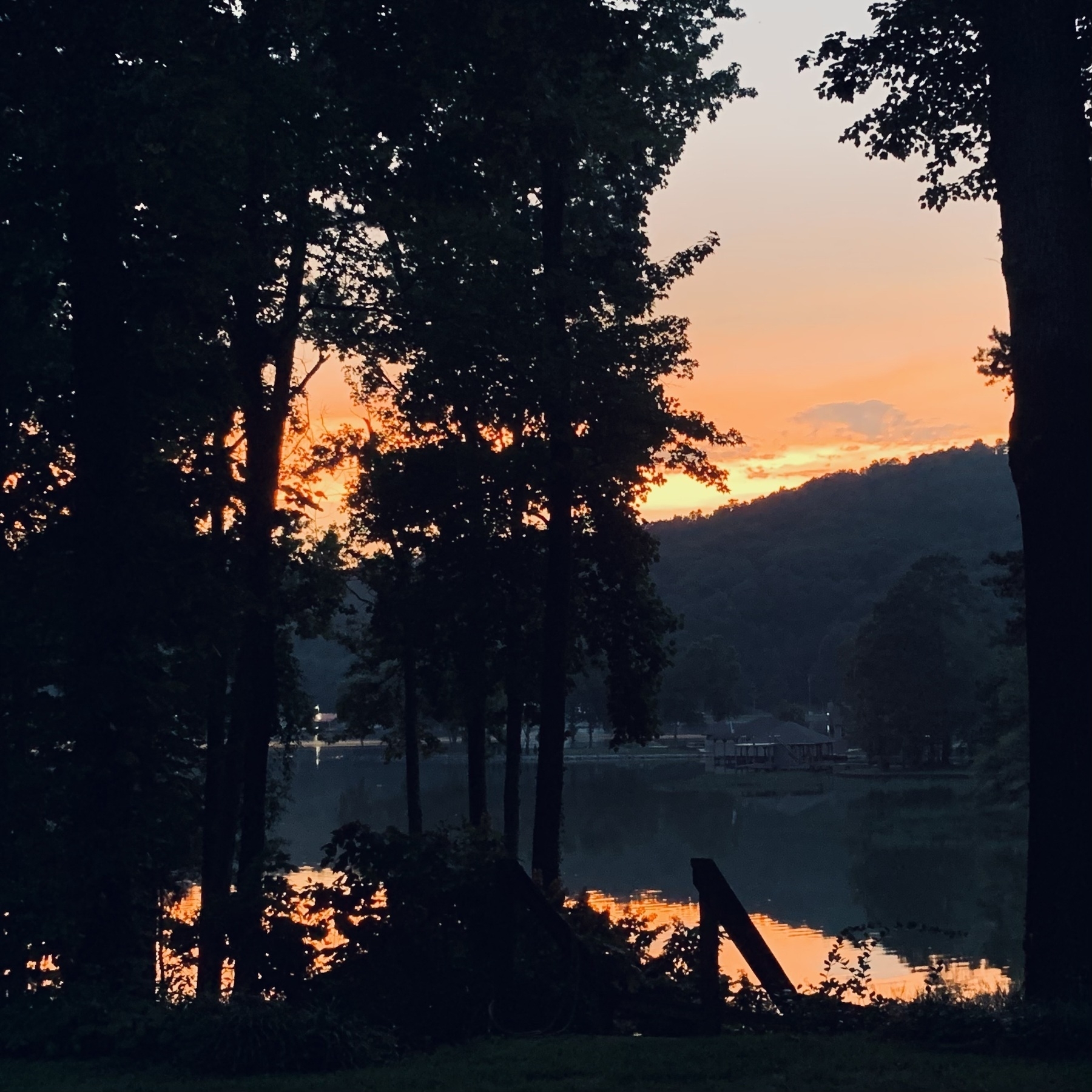The actress Theodosia Goodman became a silent-movie femme fatale after she adopted the name Theda Bara — a name which, TIL, is an anagram for Death Arab.
reading SCOTUS
Some facts:
- Very few Americans even know what the Supreme Court does; fewer still care.
- Not all those who care know.
- Among those who care, 99% — including every single journalist in America — have one simple criterion for evaluating SCOTUS decisions: If they like the outcome, it’s a good decision; if they dislike the outcome, it’s a bad decision.
- It’s utterly impossible to make such people understand that the Supreme Court always should be and often is bound to issue decisions based on the Constitution and existing law (when such law is itself consistent with the Constitution); sometimes justices issue or endorse judgments they’d rather not issue.
Students for Fair Admissions, Inc. v. President and Fellows of Harvard College is a fascinating case, and the opinions, concurrences, and dissents — all 237 pages of them — provide an extraordinary education in the social as well as the legal consequences of hundreds of years of American racism, and in the enormous complications introduced into our system by the arrival in America of large numbers of people who are neither white nor black.
(I’m setting aside, for the moment, Native Americans, who have been a dramatically special case from the beginning — as can be seen in SCOTUS cases from this very term, most notably Haaland v. Brackeen. See this NYT piece on Justice Gorsuch’s passionate commitment to Native American rights.)
I don’t know how you could read the Harvard/UNC case and think that these matters are easily resolved. Those who can’t be bothered to read the details of the case may well find it easy, but then, most issues on most subjects are easy to the uninformed. This is one of those cases in which every argument (opinion, concurrence, dissent) seems convincing — when read in isolation from the others.
I’m working my way through the whole thing, and already have a thousand thoughts. I may report later. But in the meantime, I would just encourage those of you who haven’t read the case, and especially those of you who won’t read the case, to give up the luxury of having an opinion about it.
Thomas Pynchon, America's Theologian
Today is the pub day for the longest essay I’ve ever published: “The Far Invisible: Thomas Pynchon as America’s Theologian.” (It’s paywalled, but of course you’ll want to subscribe.) (UPDATE: It has now escaped its paywall.)
How seriously do I mean my claim that Pynchon is a theologian? Is it a substantive claim or a provocation? I mean it pretty seriously.
Here’s how I would put it: Emmanuel Levinas famously argued that “ethics is first philosophy” – it is in ethics that philosophy should and indeed must begin. So, what is first theology? The answer to that question might not always be the same; it might vary by time and place. So I say that in our moment suspicion is first theology – a double suspicion, first that the rulers of this world are not the beneficent guides that they claim to be, and second that the world they rule is not the sum of things. (As Wendell Berry puts it, there are two economies, the market economy and the Kingdom of God.) Such suspicion is thus, in an endless doubling, skeptical and hopeful. These are also the two modes of prophecy, it seems to me.
This first theology is not, and cannot be, the whole of theology; but even Aquinas and Barth could not do the whole of theology, and we shouldn’t demand it of any theologian. I argue that Pynchon is our best guide to where and how theology in our time must begin; and one way to think of the task of theology for Christians is to ask what theological project should follow the one that Pynchon has inaugurated.
For those of you who are new to Pynchon — especially those who are intimidated by the thought of reading him — I’ve written an introductory guide just for you.
Finally (for now), just a couple of connections: I might want to put Pynchon in conversation with
- some of the Augustinian ideas I explored in my recent reflections on the Two Cities;
- my long-ago meditations on an Anthropocene theology, of which the Pynchon essay is an offshoot;
- Brad East’s provocative and generative review of Christopher Watkin’s book Biblical Critical Theory.
My beloved reporting from her family’s place in Alabama.

The best thing you are likely to read about the Supreme Court affirmative action decision — or rather the response to it — is Freddie’s take. Two points strike me as especially important: first, that the whole kerfuffle is a distraction from any actually meaningful racial politics in this country, since a candidate who has to go to Columbia or Amherst rather than Harvard is not exactly a victim; and second, that there’s a massive media freakout about this because so many people in our media are the products of elite universities. Several decades ago, when most journalists attended mediocre universities or, often enough, were not even college educated, we would have had a chance to have this story like this presented with some fresh, clear, well-seasoned perspective. But our journalists haven’t had any of that commodity on hand for a long, long time.
the system

I’m going to begin by quoting a very long passage from Bleak House, one involving a suitor in the court of Chancery, generally known as “the man from Shropshire,” an oddity who in every session cries out “My Lord!” – hoping to get the attention of the Lord Chancellor; hoping always in vain. His name is Mr. Gridley and Esther Summerson relates an encounter with him:
“Mr. Jarndyce,” he said, “consider my case. As true as there is a heaven above us, this is my case. I am one of two brothers. My father (a farmer) made a will and left his farm and stock and so forth to my mother for her life. After my mother’s death, all was to come to me except a legacy of three hundred pounds that I was then to pay my brother. My mother died. My brother some time afterwards claimed his legacy. I and some of my relations said that he had had a part of it already in board and lodging and some other things. Now mind! That was the question, and nothing else. No one disputed the will; no one disputed anything but whether part of that three hundred pounds had been already paid or not. To settle that question, my brother filing a bill, I was obliged to go into this accursed Chancery; I was forced there because the law forced me and would let me go nowhere else. Seventeen people were made defendants to that simple suit! It first came on after two years. It was then stopped for another two years while the master (may his head rot off!) inquired whether I was my father’s son, about which there was no dispute at all with any mortal creature. He then found out that there were not defendants enough—remember, there were only seventeen as yet!—but that we must have another who had been left out and must begin all over again. The costs at that time — before the thing was begun! — were three times the legacy. My brother would have given up the legacy, and joyful, to escape more costs. My whole estate, left to me in that will of my father’s, has gone in costs. The suit, still undecided, has fallen into rack, and ruin, and despair, with everything else — and here I stand, this day! Now, Mr. Jarndyce, in your suit there are thousands and thousands involved, where in mine there are hundreds. Is mine less hard to bear or is it harder to bear, when my whole living was in it and has been thus shamefully sucked away?”
Mr. Jarndyce said that he condoled with him with all his heart and that he set up no monopoly himself in being unjustly treated by this monstrous system.
“There again!” said Mr. Gridley with no diminution of his rage. “The system! I am told on all hands, it’s the system. I mustn’t look to individuals. It’s the system. I mustn’t go into court and say, ‘My Lord, I beg to know this from you — is this right or wrong? Have you the face to tell me I have received justice and therefore am dismissed?’ My Lord knows nothing of it. He sits there to administer the system. I mustn’t go to Mr. Tulkinghorn, the solicitor in Lincoln’s Inn Fields, and say to him when he makes me furious by being so cool and satisfied — as they all do, for I know they gain by it while I lose, don’t I? — I mustn’t say to him, ‘I will have something out of some one for my ruin, by fair means or foul!’ HE is not responsible. It’s the system. But, if I do no violence to any of them, here — I may! I don’t know what may happen if I am carried beyond myself at last! I will accuse the individual workers of that system against me, face to face, before the great eternal bar!”
His passion was fearful. I could not have believed in such rage without seeing it.
Now, please bear Mr. Gridley, and his rage, in mind as I turn to George Orwell’s great essay on Dickens. It’s possibly the finest thing ever written about Dickens – even though it’s often wrong – and is a wonderful illustration of Orwell’s power of inquiring into his own readerly responses. (A topic for another post.)
The first point I want to call attention to is this: Orwell was of course a socialist, a person who believed that British society required radical change; and there were people who saw Dickens as a kind of proto-socialist. This, Orwell points out, is nonsense on stilts. If you want to know what Dickens thinks about revolutionary political movements, just read A Tale of Two Cities. He’s horrified by them.
Orwell then goes on to note that Dickens’s early experiences as a reporter on Parliament seem to have been important for shaping his attitude towards government as a whole: “at the back of his mind there is usually a half-belief that the whole apparatus of government is unnecessary. Parliament is simply Lord Coodle and Sir Thomas Doodle, the Empire is simply Major Bagstock and his Indian servant, the Army is simply Colonel Chowser and Doctor Slammer, the public services are simply Bumble and the Circumlocution Office — and so on and so forth.”
Such a man could never be a socialist. And yet, “Dickens attacked English institutions with a ferocity that has never since been approached.” So what is the nature of this attack?
The truth is that Dickens’s criticism of society is almost exclusively moral. Hence the utter lack of any constructive suggestion anywhere in his work. He attacks the law, parliamentary government, the educational system and so forth, without ever clearly suggesting what he would put in their places. Of course it is not necessarily the business of a novelist, or a satirist, to make constructive suggestions, but the point is that Dickens’s attitude is at bottom not even destructive. There is no clear sign that he wants the existing order to be overthrown, or that he believes it would make very much difference if it were overthrown. For in reality his target is not so much society as ‘human nature’. It would be difficult to point anywhere in his books to a passage suggesting that the economic system is wrong as a system. Nowhere, for instance, does he make any attack on private enterprise or private property. Even in a book like Our Mutual Friend, which turns on the power of corpses to interfere with living people by means of idiotic wills, it does not occur to him to suggest that individuals ought not to have this irresponsible power. Of course one can draw this inference for oneself, and one can draw it again from the remarks about Bounderby’s will at the end of Hard Times, and indeed from the whole of Dickens’s work one can infer the evil of laissez-faire capitalism; but Dickens makes no such inference himself. It is said that Macaulay refused to review Hard Times because he disapproved of its ‘sullen Socialism’. Obviously Macaulay is here using the word ‘Socialism’ in the same sense in which, twenty years ago, a vegetarian meal or a Cubist picture used to be referred to as ‘Bolshevism’. There is not a line in the book that can properly be called Socialistic; indeed, its tendency if anything is pro-capitalist, because its whole moral is that capitalists ought to be kind, not that workers ought to be rebellious. Bounder by is a bullying windbag and Gradgrind has been morally blinded, but if they were better men, the system would work well enough that, all through, is the implication. And so far as social criticism goes, one can never extract much more from Dickens than this, unless one deliberately reads meanings into him. His whole ‘message’ is one that at first glance looks like an enormous platitude: If men would behave decently the world would be decent.
And here’s what I love about Orwell: he says that Dickens’s position “at first glance looks like an enormous platitude” – but he is not content with a first glance. He continues to think about it, and as he does he realizes that Dickens, after all, has a point. This I think is the most extraordinary moment in the essay:
His radicalism is of the vaguest kind, and yet one always knows that it is there. That is the difference between being a moralist and a politician. He has no constructive suggestions, not even a clear grasp of the nature of the society he is attacking, only an emotional perception that something is wrong, all he can finally say is, ‘Behave decently’, which, as I suggested earlier, is not necessarily so shallow as it sounds. Most revolutionaries are potential Tories, because they imagine that everything can be put right by altering the shape of society; once that change is effected, as it sometimes is, they see no need for any other. Dickens has not this kind of mental coarseness. The vagueness of his discontent is the mark of its permanence.
Most revolutionaries are potential Tories – that is, their revolutionary sensibility would erase itself if they could just get Their Boys into power. Once they and people like them are in charge, then they will do anything they can to thwart change. But what that means is: Meet the new boss, same as the old boss. (As I note in this essay, following Ursula K. LeGuin, even an anarchist society would have its petty tyrants.) Most would-be revolutionaries ignore this problem, but “Dickens has not this kind of mental coarseness.” And that’s why he’s vital.
This point takes us back to the man from Shropshire, Mr. Gridley. He will not be calmed by invocations of “the system,” the broken system in which everyone is trapped. The Lord Chancellor is not trapped as he is trapped. The Lord Chancellor is not a victim as he is a victim. The people who enable the system, and profit from it, must be held accountable – or nothing important will change. The salon of politics will only be redecorated. So: “I will accuse the individual workers of that system against me, face to face, before the great eternal bar!”
And this, Orwell suggests, is what the novelist can do, what the novelist can bring before our minds and lay upon our hearts. Some political systems are clearly superior to others; but Dickens understands that whatever political system we build, its chief material will be what Kant called “the crooked timber of humanity,” of which “no straight thing was ever made.” To force us to look at that truth — which, properly understood, will result not in political quietism but a genuine and healthy realism — is what the novelist can do for us. “That is the difference between being a moralist and a politician.” The novelist-as-moralist has the power to drag the individual workers of the system, any system, “before the great eternal bar” — but not God’s bar as such, which is what Mr. Gridley means, but rather, the bar of our readerly witness, our readerly judgment, whoever and whenever we are.
Counterman implications

Arguing with Supreme Court opinions, as one does — in this case Counterman v. Colorado. Now, let me be quick to say that the comment I am making above is really irrelevant to the case, because almost nothing in the opinion or the dissent is about what Counterman did or didn’t do — it’s almost exclusively an in-house debate about what criteria should be used to determine whether given speech-acts are or are nor protected by the First Amendment right to freedom of speech. Basically, the judgment of the Court could be summarized thus: “Hey Colorado, you went after Counterman by claiming that he was making ‘true threats’ and further arguing that one should use a reasonable-person standard to decide what makes something a true threat, but you went about it all wrong. The guy may well be guilty of something, but the particular argument you made against him is inconsistent with First Amendment protections, so we’re going to vacate your decision and send it back to you. Please do better in the future.” So now Colorado has to decide whether to try Counterman again using a different set of standards.
I think this decision will be really consequential in the long term. For now just a handful of thoughts:
- Kagan’s opinion is poorly-reasoned and — this is really surprising, because she’s usually the Court’s most elegant stylist — poorly written. It’s a tired opinion: when she acknowledges Barrett’s dissent she claims that one argument “falls flat” without saying why it falls flat, and claims that one case Barrett invokes is a “poor analog” without saying why it’s a poor analog.
- I think this may be because the opinion simply tries to do too much. (This is Sotomayor’s complaint in her partial concurrence: You could have just stopped after declaring the “recklessness” standard the proper one to apply here.) Kagan gets deep into the weeds by looking at several different standards that might be applied in different contexts to determine what forms of speech are unprotected by the First Amendment. Barrett’s dissent also gets into those weeds, but invokes different standards than the ones that Kagan prefers. After a while the Counterman case altogether disappears from view.
- I don’t think the majority opinion is intended to empower stalkers, harassers, and trolls, but that’s exactly what it will do. This is certainly Barrett’s view: “The Court’s decision thus sweeps much further than it lets on.” And this will lead to more bad behavior, especially online, and future legal cases that …
- … the Court’s decision here will not help to decide. The most important conclusion to be drawn from this opinion is that the Supreme Court’s free-speech jurisprudence is a total mess. Kagan clearly wants to use Counterman in order to sort through the complexity of previous cases and bring order to the jurisprudential record. But there is no order in the jurisprudential record, and in the midst of the confusion a great many bad actors are going to think themselves free to be as nasty as they want to be.
- The primary losers here will therefore be women — women like Coles Whalen, whose experience of relentless harassment by Billy Counterman was the origin of this case. And for what it’s worth, I agree with Barrett that this is an unnecessary loss:
The bottom line is this: Counterman communicated true threats, which, everyone agrees, lie outside the bounds of the First Amendment’s protection.” Ante, at 4. He knew what the words meant. Those threats caused the victim to fear for her life, and they “upended her daily existence.” Ante, at 2. Nonetheless, the Court concludes that Counterman can prevail on a First Amendment defense. Nothing in the Constitution compels that result. I respectfully dissent.
more on Korematsu
The other day I mentioned some famous Supreme Court cases that were influenced by public opinion. I had forgotten that a few years ago I wrote a post, no longer online, about one of the most important of them. I’m reposting it here, with minor edits.
Let’s take a look at one of the most widely condemned of SCOTUS decisions, Korematsu vs. the United States. In Korematsu the court allowed the practice of evicting United States citizens, often native-born citizens, from their homes and moving them away from the West Coast simply because they were of Japanese descent. The vote was 6–3, and each of the justices in the majority was appointed by President Roosevelt, the man who issued that order. (In a separate but closely related ruling, issued on the same day, the Court ruled that such citizens, though they could be forced to leave their homes, could not be “detained,” thus depriving the internment camps for Japanese-Americans of legal sanction.)
The chief interest of Korematsu, for today’s reader of the history, is the dissent by Justice Robert Jackson, later to become the Chief Prosecutor at the Nuremberg Trials. In the first stage of his dissent — which you may see in full by going here and scrolling aout three-fourths of the way down — Jackson points out that Fred Korematsu was a natural-born citizen of the United States whose loyalty to his country had never been questioned by anyone. He was merely living and working in the place of his birth (Oakland, California) but was by the Executive Order obliged to turn himself in to military authorities — an obligation that he would not have faced had he been “a German alien enemy, an Italian alien enemy, [or] a citizen of American-born ancestors, convicted of treason but out on parole.” Yet he was different from those others “only in that he was born of different racial stock.” Jackson continues:
Now, if any fundamental assumption underlies our system, it is that guilt is personal and not inheritable. Even if all of one’s antecedents had been convicted of treason, the Constitution forbids its penalties to be visited upon him, for it provides that ‘no Attainder of Treason shall work Corruption of Blood, or Forfeiture except during the Life of the Person attained.’ Article 3, 3, cl. 2. But here is an attempt to make an otherwise innocent act a crime merely because this prisoner is the son of parents as to whom he had no choice, and belongs to a race from which there is no way to resign.
This point would have been sufficient in itself to declare Roosevelt’s order unconstitutional, but Jackson discerned a larger and greater issue at stake:
Much is said of the danger to liberty from the Army program for deporting and detaining these citizens of Japanese extraction. But a judicial construction of the due process clause that will sustain this order is a far more subtle blow to liberty than the promulgation of the order itself. A military order, however unconstitutional, is not apt to last longer than the military emergency. Even during that period a succeeding commander may revoke it all. But once a judicial opinion rationalizes such an order to show that it conforms to the Constitution, or rather rationalizes the Constitution to show that the Constitution sanctions such an order, the Court for all time has validated the principle of racial discrimination in criminal procedure and of transplanting American citizens.
Jackson’s point here is exceptionally acute: this is not as matter of rationalizing — that is, giving an implausible intellectual account of — the order, but rationalizing the Constitution itself. Which is a far more dangerous move.
The principle then lies about like a loaded weapon ready for the hand of any authority that can bring forward a plausible claim of an urgent need. Every repetition imbeds that principle more deeply in our law and thinking and expands it to new purposes. All who observe the work of courts are familiar with what Judge Cardozo described as ‘the tendency of a principle to expand itself to the limit of its logic.’ A military commander may overstep the bounds of constitutionality, and it is an incident. But if we [i.e., we Justices of the Supreme Court] review and approve, that passing incident becomes the doctrine of the Constitution. There it has a generative power of its own, and all that it creates will be in its own image. Nothing better illustrates this danger than does the Court’s opinion in this case.
People are often automatically dismissive of “slippery-slope” arguments, as though no slopes are ever slippery; but once a metaphor is dead it’s dead. Justice Cardozo’s phrasing may be more useful: “the tendency of a principle to expand itself to the limits of its logic.” This tendency is almost inevitable in SCOTUS decisions, because of the power of precedent: only rarely is a decision walked back; rather, a “passing incident” very easily and naturally “becomes the doctrine of the Constitution” when justices see different situations in which it can be applied. All the pressure is on one side, towards expansion rather than contraction of the principle.
Such expansion of a principle is all the more likely to happen when popular opinion, especially elite popular opinion, is also strongly on one side. FDR’s decision to move Japanese-Americans from their homes was quite popular (as were the internment camps) and eight of the Justices had the further pressure of owing their positions on the Court to the Roosevelt. What the Justices needed was a jurisprudential principle substantial enough to make a counterweight to those pressures. All three of the dissenting judges had that principle, but it was most fully developed in and articulated by Jackson.
Not long before his death Justice Antonin Scalia was asked, by law students at Santa Clara University, which Supreme Court opinion he most admired. He named Jackson’s dissent in Korematsu.

That’s the Canadian River in the Texas Panhandle. The lovely photo is by Sean Fitzgerald from this story. The theme of this issue of Texas Highways is rivers — and more generally water in Texas. It’s something that concerns me profoundly. I have an essay on water and the West coming out in Raritan soon — I’ll link to it when it appears.
Still Life with Sheltie

banal utopias
cultivating on allotment sites has always been so much more than ‘growing your own’. As Crouch and Ward put it, ‘The allotment is a different kind of place in which different values prevail.’ These different values often seem paradoxical to the non-allotmenteer, but are precisely what ensure that allotment sites survive. In this book, one gardener tells Crouch and Ward: ‘The allotment is 51 per cent hard work, and 49 per cent disappointment.’ So why on earth do people carry on allotmenteering? When I carried out my research across numerous sites in Oxford, the words that people use to describe allotments tell us why – ‘paradise’, ‘magical’. Allotment sites are utopias. […]
This love and generosity spills off individual plots, through the allotment fences and into the wider city. On every allotment site, there is usually a place where people put their excess crops for anyone to help themselves. This is deliberate. Gifts carry obligations, and by being able to help oneself without being seen, the taker doesn’t owe anyone anything. They can also pay it forward, placing their extra produce at another time when they have it. I met a woman who survived on this gifted food – she lost her job during the lockdowns, and because she had only just secured an allotment, didn’t yet have her first harvest. Other allotmenteers grow cut flowers with the sole purpose to give them to people (often strangers) across the city, to spread joy. Even allotment fences that have been steadily erected around sites over the last few decades, to keep produce safe, break the normal rules of a city. Instead of keeping people away, allotment fences are often social places where passers-by strike up conversations with allotmenteers about what they’re growing, as well as to get a glimpse of the inviting chaos inside.
The idea of a “banal utopia” strikes me as a really powerful one: in some small and everyday way to “repair the world” and to, implicitly or explicitly, invite others to join you. Maybe everyone can find a place to make a banal utopia.
public opinion
People keep talking about the Supreme Court being “out of step with public opinion.” You know when the Supreme Court was totally in step with public opinion? When it decided Korematsu. And when it decided Plessy v. Ferguson. You know when it was out of step? When it decided Miranda v. Arizona. So some of the worst decisions ever made by SCOTUS came when the justices heeded public pressure, and some of the best when they ignored it. This wasn’t always true; but sometimes. Often enough to be a matter of note.
Many people decry SCOTUS as “unaccountable,” which simply means that justices can’t be removed when they make unpopular decisions. But Justice Robert Jackson’s dissent in Korematsu, one of the greatest moments in the history of the Court, would probably have led to his removal if justices had been thus “accountable” — which in turn would have denied us his vital role in the Nuremberg trials and also his later SCOTUS opinions, for instance in Youngstown Sheet & Tube Co. v. Sawyer, a case that did much to set limits on Presidential power. Many other cases involving many other unpopular justices could be cited.
So be careful what you ask for. Public opinion won’t always be flowing in your preferred direction. In my view, the court is already — and probably always has been — too sensitive to public opinion. I’d prefer it to make more decisions that people don’t like, and to tell those people that if they want something different they should elect representatives who, instead of auditioning for careers on TV news, will pass better laws.

Finished reading: Bleak House by Charles Dickens 📚
Anne Snyder, the editor of Comment, is doing some really important things: she’s not just publishing essays on social problems and possibilities, she’s also trying to use the journal as a kind of conduit and connector, a means to help people actually address social problems and embody social possibilities. Here’s an example from this morning. In our moment of constant critique and complaint, it’s great to see a journal with a determination to try to make things better.
Last year I explained why I think Jacques Ellul’s book on Christian anarchism is really bad; and I hinted at a different way of thinking about Christianity and anarchism in this essay. I’m more than ever drawn to Christian anarchism, but don’t have the bandwidth right now to work out what that would look like. (Consider this a note to my future self.)





